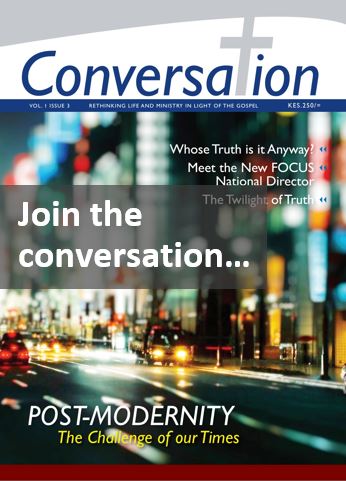
Movie trailers help us know whether we want to commit a whole hour and a half to watch a movie or 3 hours for those Bollywood films. But you and I know that a trailer offers very little to the story other than hook you in. It would be crazy to say you know that movie just because you watched a trailer of it. Watching a couple of scenes can give you the gist of the story but still not the whole picture. You have to just sit down and watch it. Other times you need to watch it more than once especially if it’s anything from Christopher Nolan. Others like 3 idiots we do several times just for the fun of it. Unfortunately, when it comes to the story of the Gospel many people settle for the movie trailer. They hear John 3:16 at some open-air meeting and go home satisfied they know the Gospel. Churches reserve a couple of Sundays for Evangelism and assume they’ve done justice to the Gospel message that year. We read a couple of books in our devotion and tick that Gospel box as done and dusted. We watch a few episodes and settle with God’s series. Would you say that’s enough if it was the movie of your life? I don’t think so. It doesn’t even come close to what we do with the movies we love. You see I think this is why we are good at Gospel familiarity and yet not so with Gospel clarity.
Unfortunately, when it comes to the story of the Gospel many people settle for the movie trailer. They hear John 3:16 at some open-air meeting and go home satisfied they know the Gospel.
Ask any random Kenyan about Jesus and they mostly have something to say about him. Actually, if you are not careful you might conclude door-to-door evangelism thinking everyone in your neighbourhood is a Christian leave for those young people pretending to know much about science. People will quote John 3:16, recite Psalms 23 and share their favourite Old Testament stories. But that does not mean they know the Gospel. At best they know the trailer which should be a good foundation to reach them except many settle at that. Sadly we can assume they are sorted just because they speak the Christian language. I think this is why many of our churches rarely teach the Bible with a view of teaching the Gospel. We separate the story of the Gospel for the few scenes that work for mission week. We might argue a lot about what should be a priority in a church teaching calendar but I think it all comes down to the assumptions we make here. If we assume people need the Gospel message to become converts then Gospel preaching becomes a matter of occasion. If we think it’s for those new in faith then we leave it for the new believers’ class. But if we believed the Gospel is more than John 3:16 or our favourite verses then we’d spend a bit more time here. But most importantly if we saw the whole Bible as the story of the Gospel and realized that it’ll take our congregants their whole lifetime to get then we might settle here a bit longer.
We Need the Gospel as Often as We Gather
I like to go to Jesus and the 12 disciples to show our students just how long and messy discipleship work is. If Jesus settled for John 3:16 you can be sure they’d be no Christianity today. He needed to show these forgetful and hard-hearted men the full story of what he came to accomplish. Show them how the scriptures are fulfilled in him. And even then it wasn’t easy. You could go to Paul in his missionary journeys and think about the back-and-forth work of planting and strengthening churches that were so easily tempted by the world like the Corinthians. It takes years to establish churches and by the time you get to 2 Timothy even his travelling companions have left him. If Paul just wrote Galatians 1 you can be sure the Gospel foundation would be even more shaky today. Or perhaps we need Moses in the wilderness to understand that disciple-making is not an event. Moses had the perfect trailer for his Gospel message. These people had seen God part the waters and deliver them from Egypt. God was the one leading them in the journey and literary giving them their daily bread. But you know how that journey was. If Moses’ message was just to remember how God came through for you before Pharaoh you can be sure that wouldn’t do it.
I mean even when we are teaching the Bible every Sunday we know there’s still a lot more work to be done in discipleship. How much more when the Gospel is not even the foundation of our gathering?
But sadly knowing how deceitful sin is, how tempting the world is and the presence of the father of lies in the world still we settle for teaching John 3:16 once in a while. We go for the trailer and assume that will do. Surely, we can’t be serious. And what else is it that we want to teach people anyway. To make more money? To make it in life? To be better at networking? To succeed in school? Come on. Send them to a YouTube channel. Let the schools organize that. Connect them to others in the church family. But please let the church pulpit be reserved for the story of the Gospel. Please give them the whole story or at least try by doing one book of the Bible this year without rushing to the new thing from your favorite televangelist. We cannot trade the story of the Gospel for anything else and assume we are making disciples. I mean even when we are teaching the Bible every Sunday, we know there’s still a lot more work to be done in discipleship. How much more when the Gospel is not even the foundation of our gathering?
We Need the Gospel to be the Main Thing
This appeal is not meant to bash or guilt trip. It’s just a plea that we would see how short we fall when we trade the pulpit for things that don’t empower our discipleship efforts. I believe the great commission in Matthew 28 can only be truly fulfilled by the local church. It’s there that disciples are made, saints are strengthened, and communion and baptism are observed but it only works when the Gospel of Jesus takes centre stage. I also believe the Gospel message is what the whole Bible teaches. That is how long it takes to get it right. We therefore cannot just give people a preview of the Gospel when they make the conversion prayer and assume we’ve done it. That is just the trailer that hooks them to see the whole story that begins in Genesis 1 and ends in Revelation 22. We need to teach the whole Gospel story. The story that points to the Saviour and ends with the feast of the lamb. The story that doesn’t just show Jesus as the cool and composed member of the Trinity but also as the Lion of Judah who will come to judge the wicked. The story that doesn’t leave the work of the Spirit at speaking tongues but in transforming Jesus’ disciples. The story that doesn’t see an angry and vengeful Old Testament God but one that is patient with sinners and whose steadfast love endures forever.
Let’s sit and learn the story of the Gospel at the main meetings of the church if this is the main text of our discipleship. Otherwise, it makes reading and teaching the Bible look like the appendix side of our discipleship book.
We need the whole story to make any headway in our discipleship efforts. We need to spend time in Genesis to see how it all began before it got worse. Take camp in Joshua and see God fulfil his promises. Dive in to see the Gospel according to Isaiah. Set off with Jonah in the big fish. Try to see what Micah is talking about. Walk in Galilee with Jesus in Mark’s Gospel. Get the depth of the Gospel in John. Hear the story of the church in Acts. Get the Gospel foundations in Ephesians. Try to get our heads around the book of Romans. Sail to Thessalonica and learn about living in light of the Gospel. Study the New Covenant in Hebrews. Dive into Revelation and see the beautiful end of the story. And let’s not assume people will do this on their own. Let’s not be comfortable with a few midweek fellowships that study a book together. Let’s sit and learn the story of the Gospel at the main meetings of the church if this is the main text of our discipleship. Otherwise, it makes reading and teaching the Bible look like the appendix side of our discipleship book. We need the whole story and especially in the times that matter the most in the church calendar.










